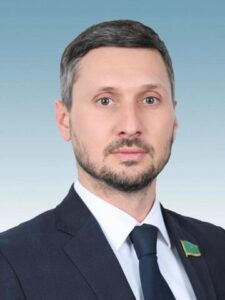ASTANA – International Peace Day is celebrated annually on Sept. 21. The Astana Times spoke with political analysts to reflect on Kazakhstan’s peace initiatives and diplomatic efforts in peacemaking over the years ahead of the participation of Kazakhstan’s delegation at the United Nations General Assembly.

Photo credit: freepik
Kazakhstan’s international diplomatic efforts in peacekeeping

Erik Batyrkhanov. Photo credit: Batyrkhanov’s personal archive
Political analyst Erik Batyrkhanov highlighted Kazakhstan’s substantial peacemaking track record. He outlined multiple positive offers Kazakhstan has made to promote peace on the international arena.
“If we talk about peacekeeping efforts, Kazakhstan has repeatedly offered a platform for the Astana process on the Syrian crisis. Now we have peacekeeping forces located on the Golan Heights. Kazakhstan is also actively promoting environmental security issues, including the Aral Sea and the elimination of the consequences of nuclear testing at the Semipalatinsk test site,” said Batyrkhanov.
“After the collapse of the USSR, Kazakhstan inherited a significant nuclear potential and voluntarily gave it up. Therefore, we have the right to talk about nuclear disarmament and non-proliferation of nuclear weapons in the international arena,” he added.
Kazakhstan’s balanced foreign policy also showcases the country’s efforts for peace, according to Batyrkhanov.
“In general, I would like to highlight Kazakhstan’s multi-vector policy. This is our historical context. Since gaining independence in 1991, Kazakhstan immediately faced many challenges. This is mainly due to our political situation and difficult economic period. Our country is always at the intersection of the interests of major powers, such as Russia, China, the United States and a group of European Union countries,” said Batyrkhanov.
“Kazakhstan always seeks to build partnerships without preference for any one power, which allows us to avoid dependence and maneuver in international relations. Given the different geopolitical interests of major players, we are always looking for a balance that precisely allows us to promote our national interests without prejudice in relation to any other country,” he added.
Elaborating on his comment, Batyrkhanov emphasized how Kazakhstan skillfully balances its relationships with major global players. This includes its participation with Russia in the Eurasian Economic Union and the Collective Security Treaty Organization (CSTO), its collaboration with China on the Belt and Road Initiative, and its strengthened ties with the European Union through the Enhanced Partnership and Cooperation Agreement.
“We should not forget that we have a country with a predominantly Muslim population, and we are also actively developing ties with countries in the Middle East, the Organization of Islamic Cooperation,” he added.

Bolgert has become the deputy of the Senate in January 2023. Photo credit: senate.parlam.kz
Evgeniy Bolgert, Senate (the upper house of the Parliament) deputy and chairman of the Wiedergeburt (Revival) Association of Germans of Kazakhstan, outlined the country’s efforts in promoting peace at home and abroad.
“I think it is no secret that Kazakhstan is one of the most proactive states in the region, promoting its peaceful and constructive international agenda. We always say that we adhere to the United Nations charter and base our policies on UN principles. We always advocate for a diplomatic way of resolving different kinds of conflicts that arise in different parts of our planet,” said Bolgert.
“Secondly, Kazakhstan hosts the Congress of Leaders of World and Traditional Religions, which in my opinion, is an integral part of such a peaceful and constructive agenda, including the efforts of our country and our partners to establish a dialogue between the largest religions, confessions, uniting a huge number of people. Kazakhstan is the place where leaders of world religions gather at a big round table. In my view, this also contributes to the fact that we have more understanding in the world and more people hear each other,” he added.
The UN declaration recognizes peace as “not only the absence of conflict but also a positive, dynamic participatory process where dialogue is encouraged and conflicts are solved in a spirit of mutual understanding and cooperation.”
Kazakhstan’s domestic peacekeeping efforts
According to Bolgert, Kazakhstan’s domestic policy puts these principles of peace into practice.
“Kazakhstan is a country where the concept of peace, unity and harmony are not mere words, they are the basic principles on which our society is built. They are the values of our society, which are declared in our laws. They are a solid basis for the peaceful, sustainable development of our country, where more than 100 different ethnic groups live,” he said.
A prime example of such unique societal cooperation is the Assembly of the People of Kazakhstan.
“Some time ago, this organization attracted the interest of many foreign experts. In today’s context, with so many conflict areas both near and far, we see that interest in the assembly as a structure that unites the society is growing,” said Bolgert.
“We already know that the model of the assembly has gone beyond Kazakhstan’s borders. There is already a fairly successful Assembly of the people of the Kyrgyz Republic. In the Russian Federation, similar structures have also been created in some regions, and I think that experts from Europe are studying this case more and more actively,” he added.
